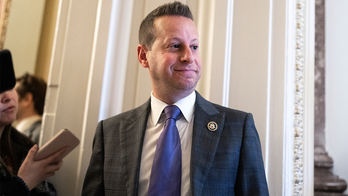
Hispanic Republican Senators Marco Rubio of Florida and Ted Cruz were among other Senators who voted against the Violence Against Women Act -- not because they oppose empowering domestic violence victims but because it takes away state rights.
The bill passed by overwhelming majority in the Senate with a 78-22 vote reauthorizing the two-decade-old act that immigrant and women's rights groups have hailed for shielding millions of women from abuse and helping reduce national rates of domestic violence.
It now moves to the U.S. House of Representatives for debate.
The law, commonly known as VAWA, has new provisions giving gays and lesbians, immigrants and Native American women equal access to the act's anti-domestic violence programs.
But why would Rubio and Cruz vote against a bill meant to protect women, especially with provisions that better protect minority women, after an election year in which Democrats characterized Republicans as casting a "war on women?"
They said they have good reasons.
A controversial provision allowing tribal courts to prosecute non-Indians accused of assaulting Indian women on reservations was hotly debated in the Senate. Republicans, arguing that subjecting non-Indians to Indian courts was unconstitutional, offered two amendments to strip that section from the bill, but both were defeated.
Rubio is particularly worried about this.
"Specifically, this bill would mandate the diversion of a portion of funding from domestic violence programs to sexual assault programs, although there’s no evidence to suggest this shift will result in a greater number of convictions," Rubio said in a statement.
"These funding decisions should be left up to the state-based coalitions that understand local needs best, but instead this new legislation would put those decisions into the hands of distant Washington bureaucrats in the Department of Justice."
Sen. Maria Cantwell, D-Wash., who chairs the Indian Affairs Committee, said Indian women are raped and assaulted at more than twice the national rate while less than half of domestic violence cases on reservations are prosecuted.
"This is about the life and death of women who need a better system to help prosecute those who are committing serious crimes against them," Cantwell said.
Cruz concurred with Rubio, noting as a former prosecutor he's all for curbing domestic violence -- but not at the expense of further expanding the federal government.
"Stopping and punishing violent criminals is primarily a state responsibility, and the federal government does not need to be dictating state criminal law," Cruz said in a statement.
The new bill would grant more than $659 million over five years to states who are willing to provide legal assistance, transitional housing, law enforcement training, stalker databases and domestic violence hotlines.
Besides the tribal provision, the bill contains another hotly debated measure. It gives undocumented immigrant women who are domestic violence victims to U.S. citizen or permanent resident husbands a chance to apply for a visa. This part of the law has traditionally drawn widespread opposition from Republicans, the argument being that it rewards illegal behavior. But many in law enforcement have supported it because it allows for a section of the population that traditionally stays mum to report crimes.
Abused immigrant women are less likely to report abuse for various reasons, such as fear of deportation, according to a report National Institute of Justice. Hispanic women are also less likely to report abuse than non-Hispanic women, but more likely to be abused.
The Associated Press contributed to this report.
Follow us on twitter.com/foxnewslatino
Like us at facebook.com/foxnewslatino




